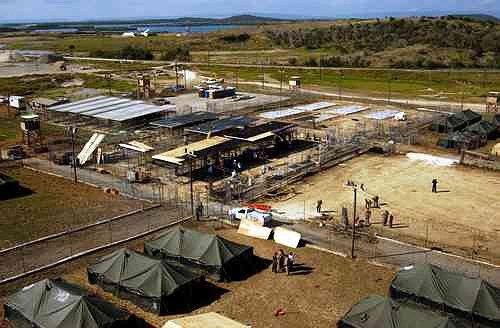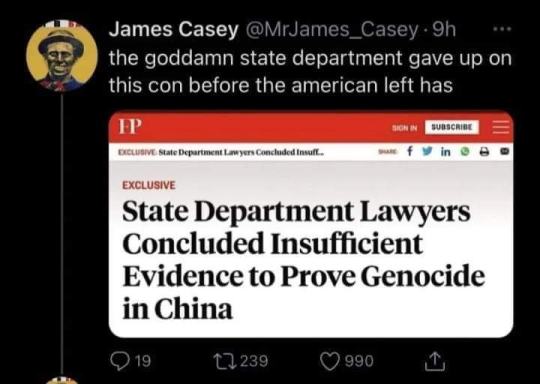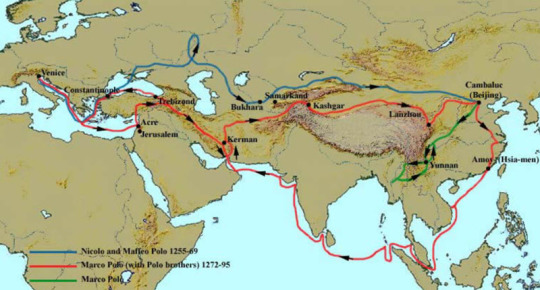#uighurs
Text
spread the word
Okay, so unfortunately, I've met quite a few folks now who are unaware of the atrocities happening in China concerning the Uighurs. I'm not an expert, so I thought I would share some helpful resources for people to learn more. if you don't know much, it can be kind of hard to get a full grasp of something when most of the current news articles and content aren't going to explain this complicated story from the start.
Here's a good article on what is being done to the Uighurs.
Here's an article that explains what's happening and gives a basic background for further understanding.
22 notes
·
View notes
Text
"Books once held sacred have become dangerous. Sholpan Amirkhan, Pioner’s sister-in-law, told me that after Pioner was taken along with his books, people in her community began purging their households of all objects that could possibly be construed as Islamic. “We did not know which books were considered bad, so we just burned all of our Uyghur and Kazakh books page by page in the stove in our house,” she said. “We were too afraid to throw them away because we worried they could be traced back to us.” Contacts from Southern Xinjiang told me that irrigation canals were clogged with masses of soggy books that villagers threw away in the middle of the night. In his memoir, the Uyghur poet Tahir Hamut Izgil describes the way his panicked neighbors dumped religious articles into the sewer in their Ürümchi apartment complex in the middle of the night. They did not trust the local authorities to protect them, so they avoided handing them in in person.
"One of the books Pioner possessed that was mentioned in his case was Garden of the Righteous, a collection of hadiths, or sayings of the Prophet Mohammad, translated from Arabic to Uyghur by the Uyghur scholar Muhemmed Salih Hajim and his daughter, Nezire Muhemmed Salih, who had studied Arabic as an international student in Qatar. After it was published through the Xinjiang People’s Publishing House in 2005, for the next decade this collection of hadiths was the standard edition used by nearly all state-sponsored imams and mollas throughout the region. Because the Uyghur translation was censored by the Ministry of Culture and excluded numerous passages the government read as problematic, it was much shorter than the original Arabic. Until Salih Hajim and Nezire Muhemmed Salih were arrested in 2017, likely on charges of “propagating terrorism and extremism, and inciting terrorist activities,” Uyghurs generally did not view this text as politically dangerous. It was only when Salih Hajim, who was 82 at the time of his detention, died less than 40 days after his arrest—one of the first known casualties of the mass internment campaign—that it became widely known that possession of his translation could result in arrest."
8 notes
·
View notes
Text
In point of fact:
We know that there are plenty of people who are never allowed to be innocent civilians even when their spokespeople are genocidal Fedayeen gangs that bellow for the annihilation of a people and a religion worldwide, or culturally specific equivalent.
Very few of the people doing this performative cosplay nationalism for a culture they do not understand nor desire to understand bother to care a damn about the Muslims of Yemen, Syria, the two Sudans, the Rohingya, or the Uighurs of Turkestan. They do not care about the Christians of Ukraine, Armenia, or Ethiopia.
What, precisely, makes a child slain in Gaza or Jenin worth more than the children of Aleppo or the Sudans? Why are some civilians the ones that get worldwide protests against their murders while others, like Ukrainians in particular, get rallies calling for the people seeking to exterminate every last one of them to be given the chance?
If Gazan children are the only ones you give a fuck about you don't care about Palestinians, nor the children slain by those bombs. You never did, you never will. What does motivate you is something else. And we have seen with the Bosnia and Kosovo Wars that there are people to whom the greatest crime is not to perpetrate butchery like Milosevic's jackals did but to stop the butchers. For these people there is no Hell sufficient to deliver them what they deserve in human imagination.
#gaza#palestine#israel#ukraine#syria#democratic republic of the congo#ethiopia#bosnia#uighurs#rohingya#armenia#sudan#south sudan#aka 'some genocides are adored by people who think the people slaughtered deserve to die'#but they won't outright say that because they know it makes them look like the sociopathic vermin they are
13 notes
·
View notes
Text
In the holy month of Ramadan, knowing that while we're safe with our family's celebrating.
That our Uyghur siblings are being tortured, forced apart, raped, starved, forcibly sterilised etc.
More than 1 million are imprisoned in these concentration camps since 2017.
All while Xinjang and China try to hide their despicable crimes.
#uighurs#uighur muslims#China#uyghur genocide#Genocide#crimes against humanity#xinjiang#Muslim#Islam#Ramadan#Ramadan 2023#free uyghur#save uyghur muslims#uyghurs
28 notes
·
View notes
Photo

As we observe the International Day of Commemoration and Dignity of the Victims of the Crime of Genocide and of the Prevention of this Crime, discover from the Uyghur Human Rights Project 8 ways how you can play a part in ending the Uyghur genocide!
➡️ http://bit.ly/3FytW15
#uyghur#uighur#uyghurs#uighurs#uyghur muslims#uighur muslims#save uyghur muslims#free uyghur#free uyghurs#save uyghur#save uyghurs#pray for uyghur#uyghur lives matter#uyghur genocide#genocide#crimes against humanity#human rights#xinjiang#east turkestan#east turkistan
50 notes
·
View notes
Text

Uighurs
#uighurs#genocide#china#america#artists on tumblr#my comic#art#comics#webcomic#comic panels#humor#comedy#comic strip#funny stuff#cartoon#funny#funny post#lol#political#activism
11 notes
·
View notes
Text
I wanna revive my turkic followers and my turkic side of this and my sideblog so TURKIC PPLS DO INTERACT
Idc if turkish, tuvan, chuvash, sakha, chukchi and so on.
#turkic#turkish#yakutsk#yakutia#chuvashia#chuvash#tatarstan#crimean tatars#turkey#chukchi#altai#uighurs#uighur#uzbekistan#uzbeks#turkmen#turkmenistan#kazakhstan#kazakh#türk#azerbaijan#azeri#azerbaijani#azerbeycan#kyrgyzstan#kyrgyz#bashkiria#bashkirs#qashqai#kumyk
32 notes
·
View notes
Text
Declassified Documents Describe China-Taliban Relations and Fears About Uighur Guerillas
Recent allegations that the Uighurs, a Turkic ethnic group native to the Xinjiang Uygur Autonomous Region in the Northwest region of China, are an “attractive constituency” for terrorist groups like Islamic State – Khorasan Province, warrant careful scrutiny, particularly at a time of increased U.S.-Chinese tension. The Chinese government strongly opposes the political movement that seeks an independent Uighur nation-state, in part due to purported concerns about political violence, and Beijing has been accused of violating Uighur human rights. The U.S., however, has indicated its support of the Uighur community in recent years. In January 2023, President Biden stated that ethnic minority communities, such as the Uighurs, continue to face “intimidation, violence, and unequal protection under the law,” a sentiment previously reflected in U.S. press briefings and other statements since at least March 2019.
This was originally published on May 8 2023 on Unredacted. I worked with Unredacted editor (and National Security Archive Director of Public Policy and Open Government Affairs) Lauren Harper to smooth out this article and make sure it flowed better, with edits back and forth from March 2023 to May 2023.
The U.S. stance on the Uighur issue has evolved across recent presidential administrations, and the assessments found in the declassified documents featured in today’s post, which were all released under the Freedom of Information Act (FOIA), reflect those of the first George W. Bush administration. These documents are a selection from the new Digital National Security Archive collection, Afghanistan War and the United States, 1998-2017, which was published in December of last year. The five documents examined in this post primarily detail: friendly Chinese relations with the Taliban in the early 2000s in an attempt to secure assurances about Uighur guerrillas in Afghanistan; a U.S. assessment of threat posed by said guerrillas; and U.S. complicity in allowing Chinese officials to interrogate Uighur detainees held at Camp X-Ray, which was housed at Guantanamo.

Aerial image of Camp X-Ray under construction in January 2002. Photograph by U.S. Navy Photographer's Mate 1st Class Shane T. McCoy.
In March 5, 2001, the State Department’s Bureau of Intelligence and Research issued a one-page secret intelligence brief noting a meeting between Chinese diplomats and Taliban Foreign Minister Wakil Ahmed Muttawakil. The discussion included recommendations from a Chinese fact-finding mission, including assurances that so-called “Xinjiang dissidents” were being trained to fight anti-Taliban groups inside Afghanistan, and not threatening China. The unnamed U.S. diplomat noted that such meetings were indicative of broadening engagement between the Taliban and China, and pointed to evidence of increased commercial contacts. Similarly, then-U.S. Ambassador to China, Joseph W. Prueher, stated in a March 9, 2001, confidential cable to Secretary of State Colin Powell that China’s “beautiful friendship” with the Taliban was rooted in a desire for “stability” and a resolution to the Afghanistan civil war. In his cable, Prueher examined why the Chinese accepted Taliban rule and cited increasing academic and official exchanges. When it came to the Uighurs, he noted Chinese fears that an unfriendly Taliban government could cause “mischief” in the Xinjiang region by supporting those termed “Uighur separatists,” and China’s hope that the Taliban would not support such guerrillas. However, he argued that although China would not formally recognize the rule of the Taliban, China was impressed by “performance and pledges” of the Taliban.
On September 18, 2001, Clark T. Randt, Jr., Prueher’s successor as U.S. Ambassador to China, reported in a confidential cable to Secretary Powell, on a meeting with an ambassador to China who predicted possible Chinese support of the U.S. War on Terror. He also noted that “growing links” between Taliban and China might complicate such support. Part of this cable described Chinese provision of economic cooperation and development aid to the Taliban to accomplish political and economic goals. This included Chinese attempts at convincing the Taliban to “not supply arms and training to separatists in Xinjiang.” These guerrillas were later described as a non-threat to the U.S. A heavily-excised cable sent on September 20 from the U.S. Air Force Office of Special Investigations summarizing the terrorist threat facing U.S. military forces in southern Kyrgyzstan stated this directly. On page three, it noted that Uighurs had proven “capable” in assaults, including against Chinese people, with the attack on an official Chinese delegation from Xinjiang at the Dostuk Hotel in Bishkek, Kyrgyzstan in May 2000. Despite this, the document said that Uighurs did not “threaten US interests in [the] region” even though some fought for the religious extremist group, Islamic Movement of Uzbekistan (IMU).
This perceived lack of threat from the Uighurs could partially explain why the U.S. government granted Chinese officials access to Uighurs imprisoned in Camp X-Ray, which was a temporary detention facility inside the Guantanamo Bay detention camp that had been used by the U.S. government to house Cuban exiles in the mid-1990s. A remarkable passage buried within an unclassified October 2009 Department of Justice Inspector General report, “A Review of the FBI’s Involvement in and Observations of Detainee Interrogations in Guantanamo Bay, Afghanistan, and Iraq,” states that “several Uighur detainees” were subjected to cruel treatment such as sleep deprivation and “disruption” at Camp X-Ray, including food deprivation. These prisoners were either interrogated by Chinese officials or by U.S. personnel at the “behest of Chinese interrogators.” (See pages 183-184.) The lingering questions surrounding the interrogation of the Uighur detainees at Camp X-Ray deserve further scrutiny now that the Biden administration is expressing support of the Uighurs.
For related documents, see our previous blog post, “Declassified U.S. Intelligence Documents Describe Taliban History with Illicit Narcotics Trade,” the Archive’s Afghanistan Project, and the Archive’s China Documentation Project.
#uighurs#china#terrorism#human rights#biden#foia#declassified#afghanistan#camp x-ray#gitmo#detention#prisoners#joseph w prueher#ambassadors#taliban#colin powell#xinjiang#kyrgyzstan#usaf#dostuk hotel#cuban exiles#doj#interrogation#unredacted
2 notes
·
View notes
Text
Mulan: What Disney's Movie Teaches Us About Xi Jinping's China
New Post has been published on https://china-underground.com/2020/09/11/mulan-what-disneys-movie-teaches-us-about-xi-jinpings-china/
Mulan: What Disney's Movie Teaches Us About Xi Jinping's China

The failure of the remake of the famous 1990s cartoon highlights several issues hidden under the carpet for too long.
In 2015, Disney had the great idea of making a film aimed at the Chinese market and at the same time designed to please the regime. Mulan’s remake seemed at the time an excellent idea to raise cash and at the same time to strengthen itself in the local market, which has always been considered a sort of Eldorado for many Western brands. But simply to set foot (or to remain) in this immense market, some minimum requirements must be met and above all, companies must not make the government nervous with useless trifles such as the existence of Tibet or human rights.
The removal of Tibet from the collective Hollywood consciousness
In the 1990s, Disney made Kundun, a film directed by Martin Scorsese about the life of the Dalai Lama. Chinese leaders turned against the film, and Disney CEO Michael Eisner himself had to travel to China to ask for forgiveness for making a film about Tibet and to negotiate a theme park in Shanghai. The film Seven Years in Tibet received a similar fate.
Again in 2016, Marvel (also owned by Disney) removed from the film Doctor Strange the character of a Tibetan sage, in the film replaced by Tilda Swinton, again in order not to break the fragile feelings of the Chinese government, which feels threatened by a superhero of paper.
The result of these setbacks is an excess of zeal towards the Chinese regime and the preventive self-censorship of the great Hollywood productions, which to reach the Chinese market, do not have any problems in putting a muzzle on their authors.
The genesis of a failure
From the earliest stages of the making of this film, Disney’s guiding light throughout Operation Mulan appeared to be to indulge and anticipate every wish of the Beijing government.
At the beginning were the unfortunate statements of the film’s protagonist Liu Yifei, who thanked the Hong Kong police for her role in crushing the pro-democratic protests in Hong Kong, causing the immediate boycott by activists and sympathizers around the world.
Like most of the film productions released in this period, the movie has had to face the crisis triggered by the COVID, which has emptied the theaters and is putting the health of the entire sector at risk. As early as 2003, SARS was among those responsible for the Hong Kong film crisis, which could no longer recover.
To get around the problem, Disney decided to rely on its new Disney + streaming platform, however requiring an additional financial effort, in addition to the cost of the subscription.
When the film was finally released, Disney’s eagerness to please the Chinese regime was finally revealed by thanking the authorities of the “autonomous” province of Xinjiang, where some scenes of the film were shot, the same authorities who rounded up and sent Uyghur citizens to concentration camps.
View this post on Instagram
#BoycottMulan is a MUST! After support HK police brutality, @Disney is pro genocide on #Uygur ! The final credits of #mulan thank Chinese government security agency in Xinjiang , where about 1m people are sent to concentration camps for torturing and forced slave labor. / support me on patreon : patreon.com/badiucao & badiucao.com/artshop 开通了 Patreon 接受捐赠,希望大家的支持和分享。 请戳:patreon.com/badiucao 独立性是艺术的根本,但是面包和牛奶也不可或缺,疫情之下许多展览和活动的机会都被取消。艺术家的生存成为难题。 感谢大家一直以来的支持,你们的慷慨解囊会让我的创作独立,持之以恒。🙏 #五大诉求缺一不可 Chinese dissident cartoonist Badiucao has unveiled a flag design that he hopes will “become a new symbol of Hong Kong’s freedom and resistance.” The rainbow-coloured design was inspired by the “Lennon Wall” message boards that have sprung up in communities across Hong Kong since June. #freedom #hongkong #antielabhk #standwithhongkong #art #artistsoninstagram #arts #streetart #hongkong #hongkongprotest #humanrights #freespeech #beijing #china #politicalcartoons #illustrationartists #australian
A post shared by 巴丢草 badiucao (@badiucao) on Sep 8, 2020 at 12:34am PDT
At this point, the film in the West was damaged by the choices made by Disney, choices dictated as we said earlier out of opportunism and to satisfy the wishes of Beijing.
Yesterday a circular from the Chinese government imposed silence around the film, guilty of having attracted further unwelcome criticism from the West.
The film has therefore not been banned in China but has been blacked out in the mainstream media, forever undermining the chances of recovering the investment and at the same time betraying the expectations of the Disney CEO who imagined diving into a sea of the renminbi.
The film also did not even receive positive reviews on the Douban aggregator, who with an average of 4.7 out of 10, decreed a negative verdict, thus nipping in the bud the possibility that the film could be saved thanks to word of mouth. The film was not particularly appreciated by the Chinese public for some changes made to the original plot, for the general flatness of the production, and the lack of historical coherence.
Mulan, however, comes out in 2020 and not in 2016, after the outbreak of the coronavirus, which originated in China, after the trade war with Trump, after the pro-democracy protests in Hong Kong, and also after the creation of the unfortunate concentration camps in Xinjiang.
In this period, the American government has also targeted for security reasons several Chinese companies, starting with Huawei to get to Tiktok, companies that have managed to spread to the West, but which have now been crippled by US intervention. The first was banned from competitions for the construction of 5g networks in practically the entire West and was prevented from buying the American chips, essential for the creation of smartphones, and the second instead is seen as a Trojan horse for spy on citizens of half the world.
Since the opening of the Chinese market in the 1990s, China has been stormed by large and small Western companies who saw the Asian country as a possibility to increase turnover, without paying attention to a series of “annoying” limitations, such as environmental regulations and respect for workers’ rights. Therefore, with this looting mentality in mind, countless companies have moved to China in search of easy earnings, putting aside any moral qualms, often relocating wildly to the East, sending home workers in place of cheaper labor, often also taking advantage of government incentives to promote foreign trade.
Disney wasn’t the first Western company to try to satisfy Beijing’s wishes. The NBA lost hundreds of millions of dollars in revenue after a dispute over comments directed at the situation in Hong Kong. The English Premier League was also confined to a corner for the same reason. Canadian canola producers had their exports frozen for a year to China, in retaliation for the arrest of Huawei founder’s daughter in Canada, all South Korean operations were halted in China during the construction of the US anti-missile system in South Korea.
Self-censorship, as well as being morally questionable, does not pay.
#Censorship, #Mulan, #Uighurs, #Xinjiang
3 notes
·
View notes
Note
why do you literally excuse genocide against muslims lol

Produce sufficient evidence and I'll believe you but you can't. I've seen the satellite photos of the schools (both concentration camps and "thought-transformation camps" in anti-China speak) and the BBC documentary of them - neither provide evidence of what the racist, imperialist governments and institutions of the West and their lackeys are alleging. It's hysterical propaganda motivated by a threatened Western imperialism. Meanwhile there's hardly a peep in the mainstream media about the proven genocide in Yemen waged by Saudi Arabia and backed by the US.
https://foreignpolicy.com/2021/02/19/china-uighurs-genocide-us-pompeo-blinken/
#anti imperialism#anti imperialist#propaganda#China#uighurs#xinjiang#uygur muslims#muslim#islamophobia#anti capitalism#anti-imperialism#socialism#socialist#capitalism#communism#imperialism#imperialist#communist#lies#concentration camps#oppression
5 notes
·
View notes
Note
out of curiosity & if u can answer, what's the genocide you've researched?
The Uighur genocide, which is ongoing and evolving. My original research is quite limited; I mainly help others, for example by finding and translating official Chinese sources for journalists who don't speak Chinese. I also have access to several large datasets that are otherwise not easily accessible to people (they are technically openly available, but sorting through them is complicated), and I make sure that when I come across a relevant document in my own research, I forward it to someone working on the topic.
If there's any interest, I'd be happy to talk more about what is going on in the Uighur homeland (most of which is located in what is now called the Xinjiang Autonomous Region) and why I think the genocide label is valid (though I personally don't care if others choose not to use it and prefer to talk about 'crimes against humanity' instead). I can also talk a little bit about the difficulties that come with documenting a genocide in closed states where access to information is highly controlled, and how people go about collecting proof anyway.
This is not directly related to genocidal acts, but if you want to get a sense of the overall political climate in the Uighur region, I recommend watching this report (link leads to a Weibo/"Chinese Twitter" post where the video is embedded) put out by China's official international broadcaster CGTN. I find it useful because it is an official source that is unintentionally revealing. The video is 10 minutes long, in English, and chronicles how the Chinese government dealt with 'mistakes' in school textbooks used in the Uighur region - basically the inclusion of stories that featured Uighur heroes and were labeled 'religious extremism' and 'separatism' (they're not - they're folklore stories). It gives you a good idea what people go to jail for, and what the sentences are.
Please note that the video includes forced confessions, i.e. footage of the 'criminals' confessing their 'crimes' and denouncing themselves in front of the camera so that that Chinese state TV can show proof of their 'guilt.' This is a common practice in China. People usually do so under duress, in some cases while drugged, or to have their sentences reduced (in one of the cases in this video, this may have potentially meant having a death sentence converted into a suspended death sentence, i.e. life in prison). I usually recommend people not watch these 'confessions' since they are recorded without any meaningful consent, but in this case, I would urge folks to watch the 'confession' and forced self-denunciation of Alimjan Memtimin (which is shown in several parts throughout the video, but the part at the 8:10 minute mark is particularly disturbing to me) because it perfectly encapsulates the extremely disturbing nature of these political prosecutions and the overall political climate.
#uighurs#uighur genocide#asks#anon#thank you for the ask!#please watch the video I linked to if you can#uyghurs
7 notes
·
View notes
Text
The Revival of the Silk Road Under
The Revival of the Silk Road Under
Episode 30: Pax Mongolica and Cultural Exchange
Barbarian Empires of the Steppes (2014)
Dr Kenneth Harl
Film Review
Following Kublai Khan’s conquest of China, the Mongols imposed a Pax Mongolica* across the steppes, which ended centuries-long warring between nomad tribes. The resulting peace led to a revival of the Silk Road and renewed prosperity of both states and nomads involved in the…

View On WordPress
#Buddhism#golden horde#ilkhanate empire#Islam#kublai khan#pax mongolica#shia#silk road#sufism#transoxiana#uighurs
1 note
·
View note
Text
instagram
#palestine#free palestine#sudan crisis#sudanese genocide#stop the congo genocide#free congo#uighurs#free uighur muslims#Instagram
0 notes
Text
By meeting with Xi Jinping, US president Biden literally said:
China opresses Uighurs and wants to attack Taiwan? Ha, i don't give a fuck!
0 notes
Text
'बाघ की कुर्सी से बंधे, बलात्कार, नशा': संयुक्त राष्ट्र की खराब रिपोर्ट से पता चलता है कि चीन ने शिनजियांग में उइगरों को कैसे प्रताड़ित किया - टाइम्स ऑफ इंडिया
‘बाघ की कुर्सी से बंधे, बलात्कार, नशा’: संयुक्त राष्ट्र की खराब रिपोर्ट से पता चलता है कि चीन ने शिनजियांग में उइगरों को कैसे प्रताड़ित किया – टाइम्स ऑफ इंडिया
रिपोर्ट में विस्तार से वर्णन किया गया है कि चीन द्वारा “व्यावसायिक शिक्षा और प्रशिक्षण केंद्र” (वीईटीसी) नामक पुन: शिक्षा शिविरों का उपयोग “उग्रवाद” के उद्देश्य से किया जाता है। 2019 में चीनी सरकार ने कहा कि वीईटीसी “मामूली मामलों” में शामिल लोगों के लिए पुनर्वास का एक “उदार” रूप है। हालांकि, संयुक्त राष्ट्र की रिपोर्ट में कहा गया है कि आतंकवाद के “गंभीर” और “मामूली” कृत्यों और / या “चरमपंथी”…

View On WordPress
0 notes